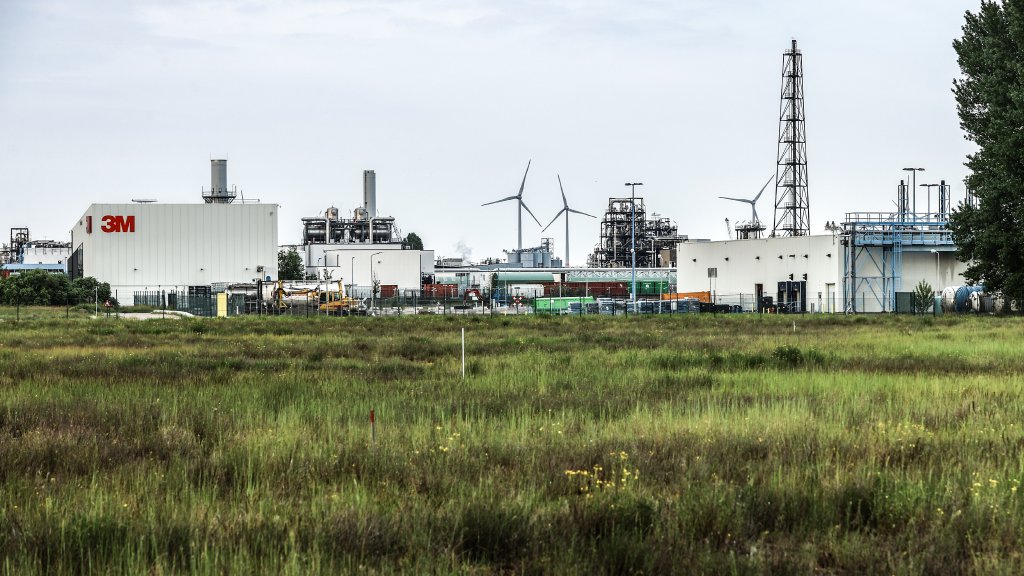The Flemish investigation committee that was assigned to look into the pollution scandal around the 3M site in Antwerp has concluded that the company is indeed responsible for contaminating the region with the toxic chemical PFOS.
The final report of the research committee PFOS-PFAS in the Flemish Parliament marks an important milestone in the year-long pollution scandal, which saw reports emerge of the air, soil and blood of people in the proximity of American multinational 3M's factory being contaminated with PFOS, and resulted in political turmoil.
Since the inaugural meeting of the committee at the end of June last year, it heard from about 100 environmental, legal and other experts in about 50 hearings, and has now concluded that 3M is the main culprit for the historical pollution in the wide area of Zwijndrecht.
The committee announced in parliament that it found that 3M did not communicate transparently enough about the pollution, and stated it was "disturbed by the attitude of the company," which minimised its own responsibility and the harmfulness of PFOS substances.
"The painful conclusion is that 3M has acted in a disloyal and socially irresponsible manner and neglected its environmental duty of care, and even carried out activities that must be considered illegal. They have a crushing responsibility," said Koen Daniëls, the vice-president of the committee.
The committee wants the company to compensate for all damage caused and to pay all clean-up costs, and said that the Flemish government should oblige 3M to do so. From now on, companies must also demonstrate that their products are safe before they are marketed, and the impact on the environment and health is taken into account before permits are rewarded to companies.
Political responsibilities nuanced
Overall, the committee is more cautious when it comes to pointing the finger at the government or ministers close to the scandal, despite the government reportedly knowing about the issue for years and remaining quiet.
"It's nuanced: we can't say that politicians deliberately did something wrong and deliberately tried to poison people," said Chair of the Committee Hannes Anaf.
However, another member, Willem-Frederik Schiltz, said the committee did conclude that politicians bear a responsibility. "They could not protect the residents around the 3M site in Zwijndrecht. This committee recognises that responsibility without hesitation." The names of individual politicians, however, were not mentioned.
"These political decisions include the decision on 12 October 2017 not to communicate - with the direct consequence that no immediate measurements were taken in the residential area of Zwijndrecht - which led to the fact that inhabitants were exposed to pollution no less than four years longer," MP Mieke Schauvliege for the Flemish Groen party wrote on Twitter.
In light of the report's findings being presented, she once again argued the committee should acknowledge that several important political decisions had a major impact on the scandal, adding that not doing so would "damage the trust of everyone who followed the commission."
Related News
- Belgium rejects 3M appeal and tightens regulations on hazardous chemicals
- ‘Remediation necessary’ around 3M site to limit risk to humans
"It is now up to the Flemish government to ensure that these are not just empty words, but that the recommendations are put into practice so that the protection of public health and our environment once again take precedence over the industry," said Schauvliege.
Divided administrations
The commission's final report also focuses on the compartmentalisation of authorities and public services, stating this prevented important information from flowing through and necessary decisions from being taken, in addition to decisions being made on different levels without an overall overview.
The committee called for an end to this compartmentalisation, for "breaking down the partitions between policy areas" and for stronger environmental legal expertise within the government, stressing that environmental administrations have to be improved to ensure similar pollution scandals can be avoided in the future.
"We have to make sure that the Flemish administration is less compartmentalised and that all the knowledge that is there can flow through if we want to avoid this kind of thing in the future," Daniëls said.

